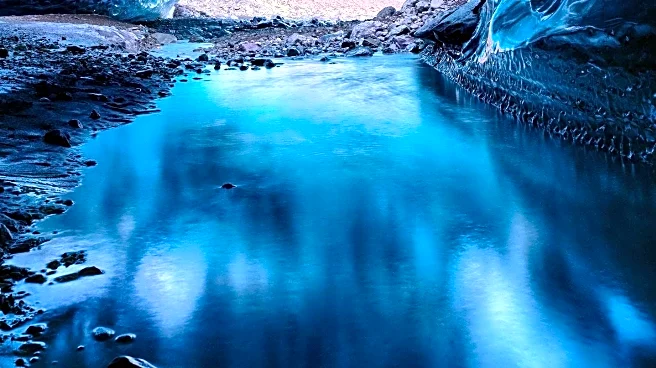What is the story about?
What's Happening?
Glacier guides in Vatnajökull National Park are gearing up to welcome visitors back to the ice caves as the winter season begins next month. Thirty companies have been granted contracts to conduct tours, adhering to strict safety standards and visitor care requirements. Sigurjón Andrésson, chair of the park's board, emphasized the importance of safety and visitor experience in these operations. The agreements limit group sizes to between 8 and 16 guests per guide, ensuring a smooth and enjoyable experience without queues inside the caves. Last year, over 200,000 people participated in glacier hikes and cave tours, highlighting the popularity of this tourist activity. The caves close each summer for safety reasons and reopen in early October, with conditions assessed daily by guides. The Nature Conservation Agency oversees the operations, which generate ISK 4–5 billion annually.
Why It's Important?
The reopening of the Vatnajökull ice caves is significant for Iceland's tourism industry, which benefits from the substantial revenue generated by glacier hikes and cave tours. The strict safety measures and limited group sizes are crucial for maintaining the quality of the visitor experience and ensuring safety. This development is likely to attract a large number of tourists, boosting local businesses and contributing to the economy. The decision to consider longer-term contracts for tour operators could provide stability and encourage investment in the region, further enhancing its appeal as a tourist destination.
What's Next?
As the ice caves reopen, tour operators will continue to assess conditions daily to ensure safety. The Nature Conservation Agency will maintain oversight, and the potential for longer-term contracts could be explored to provide stability for operators. The tourism industry may see increased activity, prompting local businesses to prepare for a surge in visitors. Authorities will likely monitor the impact on the local economy and consider additional measures to support sustainable tourism growth.















